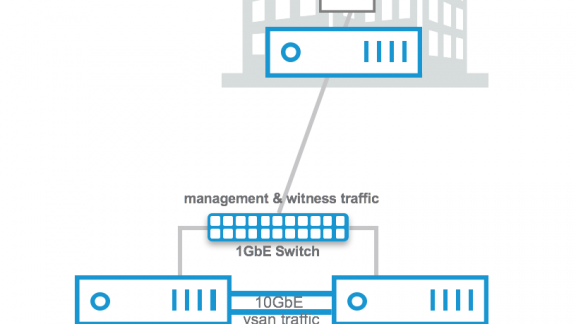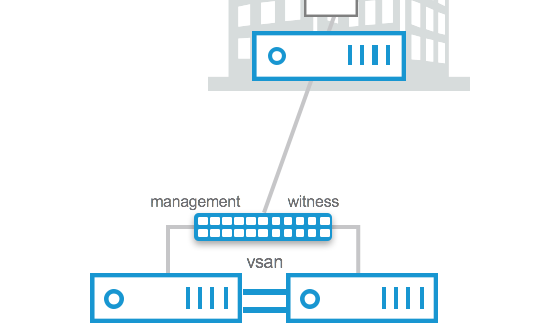One of the most common questions I am asked pertaining to vSAN 2 Node and Stretched Clusters configurations, is “Can I run a vSAN Witness Appliance in vCloud Air?”
Why wouldn’t someone want to run the vSAN Witness Appliance in vCloud Air? It is a great use case for a virtual machine that needs to run in a 3rd site, away from, in the case of vSAN Stretched Clusters, 2 different sites, and from a single site when using vSAN 2 Node for small deployments.
The answer thus far has been “You should be able to.”
We have been listening and it is now supported.
This is the first in a series of posts that details the process of running a vSAN Witness Appliance in vCloud Air.
2 Node & Stretched Cluster Basic Requirements
VMware vSAN introduced 2 Node and Stretched Cluster capability with the release of vSAN 6.1.
Looking at a basic 2 Node & Stretched Cluster schematic, the Witness Appliance can be seen in a third site, with hosts in both the Preferred and Secondary sites.
The vSAN Witness Appliance must reside in a different location. Stretched Clusters and 2 Node configurations are not supported when the vSAN Witness Appliance is running in the same location as either side of the compute/data nodes.
There are latency requirements between the Witness Appliance and each data site, as well as throughput.
Latency requirements are
- 200ms RTT for Stretched Clusters with up to 10 hosts per site
- 100ms RTT for Stretched Clusters with more than 10 hosts per site (up to the max of 15)
- 500ms RTT for 2 Node configurations.
Bandwidth requirements are entirely dependent on the amount of components on vSAN. I’ve covered these in the Stretched Cluster Bandwidth Sizing Guidance documentation previously as well as the Stretched Cluster and 2 Node Guide.
Choosing vCloud Air for the Third Site
There are some things to consider when choosing vCloud Air as a location for the location of the Witness Appliance.
Running the vSAN Witness Appliance in vCloud Air has a some distinct advantages:
- No third site to maintain
- No hardware or underlying infrastructure to maintain
- Run run the appliance
- No facilities to maintain
- Easy to grow as needed
- Included remote network capabilities
- VPN connectivity
- Easily manageable firewall rules
- Easily configurable networking
How can a vSAN Witness Appliance be run in vCloud Air?
The setup process isn’t significantly difficult, but there are some distinct requirements. The vSAN Witness Appliance must be uploaded to vCloud Air, networking must be in place between the vSAN cluster and vCloud Air, as well as a few more tasks to make this work successfully.
This series will cover how to accomplish these tasks, showing how to run a vSAN Witness Appliance in vCloud Air.
- Part 2 covers uploading the vSAN Witness Appliance
- Part 3 covers configuring networking in vCloud Air
- Part 4 covers deploying the vSAN Witness Appliance in vCloud Air


